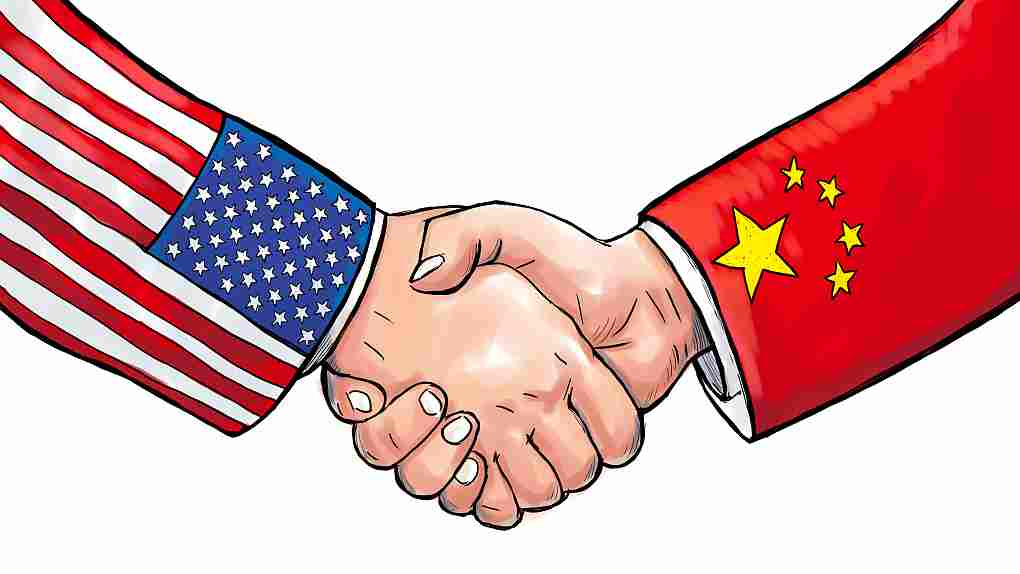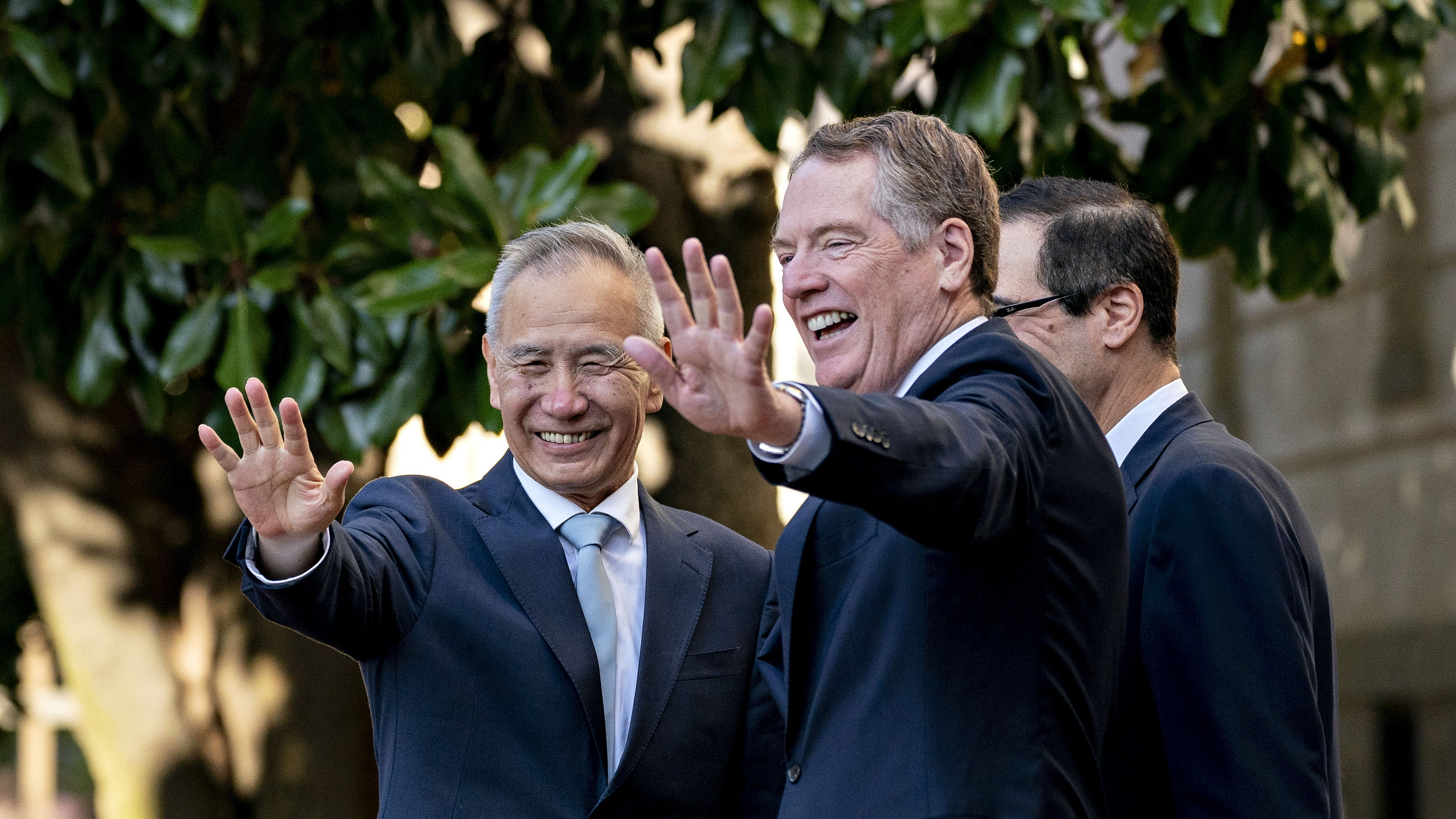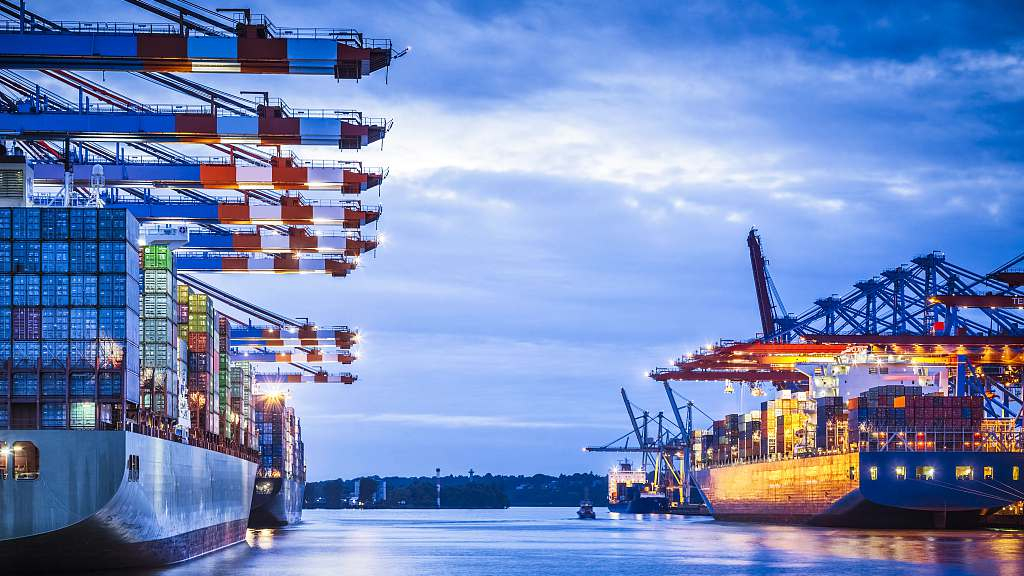02:31

A two-day symposium held by three leading think tanks from China, the U.S. and Singapore concluded on Thursday. The trio discussed China-U.S. trade relations, which had a lot riding on the upcoming APEC Economic Leaders' Meeting. While Chile has opted to cancel hosting the event, experts say China and the U.S. will stay on track towards a strong solution.
Following Chile's announcement that it will cancel its hosting of the APEC Economic Leaders' Meeting in mid-November, former Chinese Vice Commerce Minister Wei Jianguo says it won't affect any possible China-U.S. trade deals.
Wei is now the vice chairman of the China Center of International Economic Exchanges (CCIEE).
"It won't affect trade negotiations between the two countries. The undertone of being coordinated, cooperative and stable between the two sides won't change. They can sign the deal in China, the U.S. or a third country. It won't affect the two teams' work, nor negotiation results."
The U.S. and China held their 13th round of trade talks three weeks ago, after which both sides released positive statements.

Chinese Vice Premier Liu He (L) and U.S. Trade Representative Robert Lighthizer wave to members of the media, October 11, 2019. /VCG Photo
Chinese Vice Premier Liu He (L) and U.S. Trade Representative Robert Lighthizer wave to members of the media, October 11, 2019. /VCG Photo
Beijing says they have been working on the wording of the phase one agreement since then.
Zhang Xiaoqiang, former deputy director of the National Development and Reform Commission, the executive vice chairman and CEO of CCIEE, said some participants expect the phase one agreement to be completed soon, followed by a few more agreements later.
"Some people say it will be hard to reach the phase one agreement, but it's relatively easy. Phases two and three will be harder, which demand more efforts from both sides. It's not enough if we only depend on China's efforts, the U.S. needs to fulfill its promises," said Zhang.
Some people believe the trade war has hurt China's economy, as China's economic growth rate in the first three quarters of this year was only 6.2 percent, while the GDP in 2018 was 6.6 percent.
Some people are concerned that China's economic growth rate will be below six percent, but Wei is upbeat on this.

"The effects of some policies in our reform, including tax and fee cuts, and export boosts haven't shown. And, at Christmas, we will see another boom in exports and domestic consumption. Also, we have some major events in the year, including holding the International Import Expo in November. With all these, I believe China's GDP in the fourth quarter will stay at 6.2 percent," said Wei.
It's been 17 months since the trade dispute between the two countries started. Wei says that he is optimistic about the China-U.S. trade negotiations. It's not easy for the two sides to go this far, but through this long process, both nations have had a good understanding of the other side's core interests, and know where the red lines are.
"It will help them reach the final deal," Wei stressed.